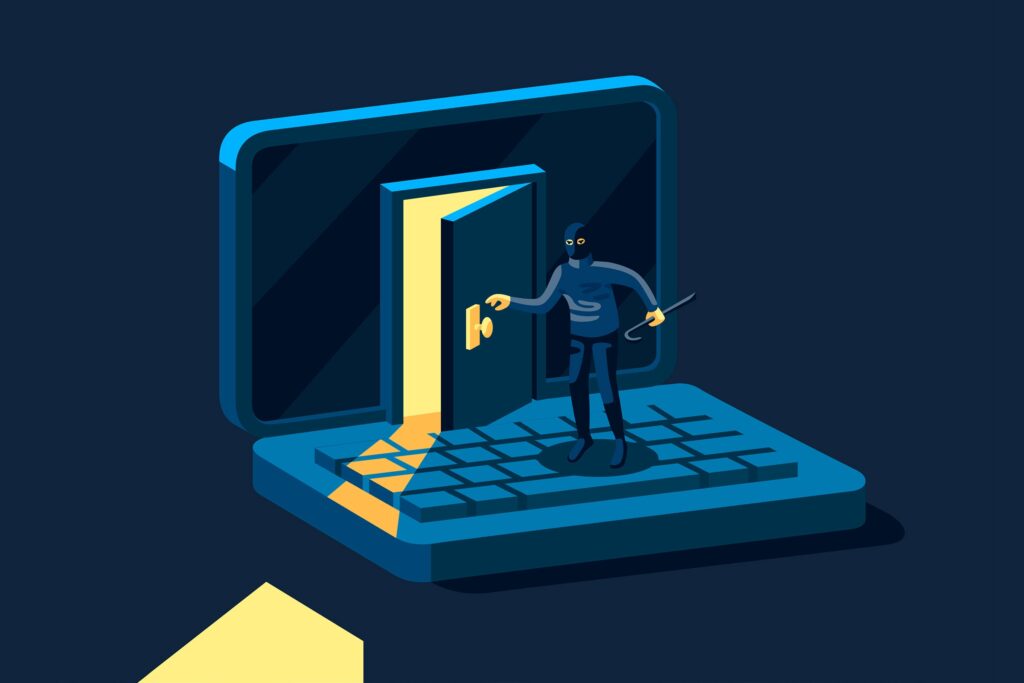In today’s interconnected world, cybersecurity has become an essential concern for individuals and organizations alike. As technology advances, so do the skills of hackers, making it increasingly difficult to protect sensitive information from cyberattacks. In response to this escalating threat, the demand for skilled hackers has never been higher. Companies are now actively seeking out individuals with the expertise to identify vulnerabilities in security systems and develop innovative solutions to safeguard against malicious attacks. In this article, we will explore the growing need for hackers and the critical role they play in keeping our digital infrastructure secure.

This image is property of www.simplilearn.com.
The Importance of Hackers
Securing Digital Infrastructure
In today’s interconnected world, securing digital infrastructure is of utmost importance. Hackers play a crucial role in this process by identifying vulnerabilities and weaknesses in systems, networks, and applications. By exploiting these vulnerabilities, ethical hackers expose the weaknesses to the organizations, helping them strengthen their defenses and protect sensitive data.
Detecting Vulnerabilities
Hackers possess the unique ability to think like cybercriminals and anticipate their moves. They are skilled in identifying and exploiting vulnerabilities in software, hardware, and networks. By understanding the tactics and techniques employed by malicious hackers, ethical hackers can proactively detect vulnerabilities and fix them before they can be exploited for malicious purposes. Their expertise and efforts contribute significantly to the overall resilience and security of digital systems.
Protecting Personal Data
With the increasing digitization of personal information, the protection of personal data has become a critical concern for individuals, organizations, and governments alike. Hackers, especially ethical hackers, are at the forefront of keeping personal data secure. By conducting vulnerability assessments and penetration testing, they ensure that personal data remains confidential and protected from cyber threats.
Types of Hackers
White Hat Hackers
White hat hackers, also known as ethical hackers, are individuals who use their hacking skills for the greater good. They work within legal boundaries to identify vulnerabilities and assist organizations in improving their security measures. These individuals often work as security consultants, penetration testers, or in-house security professionals. Their goal is to protect systems and networks from unauthorized access and potential cyber attacks.
Black Hat Hackers
Black hat hackers are individuals who use their hacking skills for nefarious purposes. They exploit vulnerabilities in systems, networks, and applications with malicious intent, often resulting in theft, unauthorized access, or damage to digital assets. Unlike ethical hackers, black hat hackers operate outside the law and can cause significant harm to individuals and organizations.
Grey Hat Hackers
Grey hat hackers fall somewhere in between white hat hackers and black hat hackers. They do not have malicious intent like black hat hackers but may exploit vulnerabilities without explicit permission from the target. Grey hat hackers often disclose the vulnerabilities they find to the affected organizations but without the full consent or knowledge of those organizations. Their actions can be considered morally ambiguous and raise ethical concerns.

This image is property of miro.medium.com.
Skills Required for Hacking
Programming Knowledge
One of the fundamental skills required for hacking is a strong understanding of programming languages. Hackers, regardless of their intentions, must have knowledge of programming languages such as Python, C++, or Java. This knowledge allows them to understand software vulnerabilities and write custom scripts to exploit weaknesses.
Networking and Operating Systems
Hackers need to have a deep understanding of networking concepts and operating systems. They must be knowledgeable about protocols, network architecture, and how systems interact with each other. Similarly, a solid understanding of various operating systems like Windows, Linux, and macOS is vital for hackers to exploit vulnerabilities effectively.
Cybersecurity Fundamentals
Hackers must possess a solid foundation in cybersecurity concepts and techniques. This includes understanding encryption, secure coding practices, network security, and access control mechanisms. By having a comprehensive knowledge of cybersecurity fundamentals, hackers can navigate through systems, understand security measures, and identify potential vulnerabilities.
Ethical Hacking
Understanding Ethical Hacking
Ethical hacking, also known as penetration testing or white hat hacking, is the methodical and authorized approach of identifying vulnerabilities in systems and networks. Ethical hackers carry out hacking activities with the goal of improving security measures and protecting against cyber threats. Their actions are done with the full consent and authorization of the organizations involved.
Certifications for Ethical Hackers
To validate their skills and ensure a high standard of professionalism, ethical hackers often obtain certifications related to ethical hacking. Certifications such as Certified Ethical Hacker (CEH), Offensive Security Certified Professional (OSCP), and Certified Information Systems Security Professional (CISSP) provide credibility and recognition in the industry. These certifications validate the knowledge and expertise of ethical hackers and showcase their commitment to ethical practices.
Ethical Hacking Process
The ethical hacking process typically consists of several phases, including reconnaissance, scanning, gaining access, maintaining access, and covering tracks. These phases follow a systematic approach to identify vulnerabilities, exploit them, and provide the necessary recommendations for strengthening the security posture. Ethical hackers utilize various tools, techniques, and methodologies to ensure a thorough assessment of systems and networks.

This image is property of www.csoonline.com.
Hacker Tools and Techniques
Enumeration and Scanning
Enumeration and scanning are key steps in the hacking process. Enumeration involves extracting information from systems, networks, or applications to gather valuable data that can aid in exploiting vulnerabilities. Scanning, on the other hand, involves mapping out network architecture and identifying open ports, services, and devices. Tools such as Nmap and Nessus are commonly used by hackers to perform enumeration and scanning.
Exploitation and Attack Vectors
Exploiting vulnerabilities is at the core of hacking activities. Once vulnerabilities are identified, hackers attempt to leverage them to gain unauthorized access, manipulate data, or disrupt services. They utilize various attack vectors, including SQL injection, cross-site scripting (XSS), buffer overflow attacks, and many others. By understanding and exploiting these vulnerabilities, hackers can demonstrate the potential impact of an attack and recommend appropriate countermeasures.
Password Cracking
Password cracking is a technique used by hackers to gain unauthorized access to systems or accounts by deciphering passwords. Hackers employ methods such as brute force attacks, dictionary attacks, and rainbow table attacks to crack passwords and bypass authentication mechanisms. By effectively cracking passwords, hackers can expose weak password practices and prompt organizations and individuals to strengthen their password security.
Common Hacking Threats
Phishing Attacks
Phishing attacks involve impersonating a trusted entity to deceive individuals into revealing sensitive information such as usernames, passwords, or financial details. Hackers often use phishing emails, websites, or phone calls to lure victims into providing their personal or confidential information. Phishing attacks can lead to identity theft, financial loss, or unauthorized access to systems.
Malware and Ransomware
Malware and ransomware attacks are prevalent in the digital landscape. Hackers create malicious software that infiltrates systems, steals data, or locks users out until a ransom is paid. Malware can enter systems through various means, including email attachments, infected websites, or malicious downloads. Effective cybersecurity measures and education are essential to prevent malware and ransomware attacks.
Social Engineering
Social engineering attacks exploit human psychology and manipulate individuals into revealing confidential information or performing actions they would not typically do. These attacks take advantage of human emotions, trust, and vulnerabilities to gain unauthorized access. Common techniques include pretexting, baiting, phishing, and tailgating. Educating individuals about social engineering techniques is crucial in mitigating the risk of such attacks.

This image is property of www.synopsys.com.
Hacker Communities and Events
Defcon
Defcon is one of the most prominent annual hacker conventions held in Las Vegas, attracting thousands of hackers, cybersecurity professionals, and enthusiasts from around the world. It provides a platform for sharing knowledge, discussing cutting-edge research, and showcasing new hacking techniques. Defcon encourages ethical hacking and hosts various events, workshops, and competitions to foster collaboration within the hacker community.
Black Hat USA
Black Hat USA is an international cybersecurity conference that focuses on cybersecurity research, vulnerability analysis, and development of defensive and offensive security capabilities. It brings together professionals, researchers, and hackers to discuss the latest trends and developments in the field. Black Hat USA provides a forum for the exchange of ideas, promotes ethical hacking practices, and highlights emerging threats and countermeasures.
HackerOne Bounty Program
HackerOne is a platform that connects ethical hackers with organizations looking to improve their security. The HackerOne Bounty Program allows organizations to invite hackers to test and identify vulnerabilities in their systems in exchange for a monetary reward. This program incentivizes ethical hacking and encourages collaboration between hackers and organizations. It has become a valuable resource for companies seeking to strengthen their security posture.
Legal and Ethical Considerations
Understanding Cyber Laws
Hackers must operate within the boundaries of legal frameworks established to govern and protect digital systems. Understanding cyber laws, such as the Computer Fraud and Abuse Act (CFAA) in the United States or the General Data Protection Regulation (GDPR) in the European Union, is crucial for ethical hackers. Compliance with these laws ensures that hacking activities are conducted ethically and legally.
Hacker Code of Ethics
Ethical hackers adhere to a code of ethics that guides their actions and ensures responsible and ethical behavior. This code includes principles such as obtaining proper consent, respecting privacy, and not causing harm. Ethical hackers prioritize the security and confidentiality of sensitive data, act with integrity, and maintain professionalism in their hacking activities.
Responsible Disclosure
Responsible disclosure is the practice of notifying organizations about vulnerabilities and waiting for them to address the issues before making them public. Ethical hackers play a critical role in responsible disclosure. By informing organizations about vulnerabilities and providing recommended solutions, they help enhance security without exposing systems to potential malicious actors. Responsible disclosure preserves the balance between transparency and security.

This image is property of Amazon.com.
Career Opportunities in Hacking
Penetration Tester
Penetration testers, also known as ethical hackers, are professionals who simulate cyber attacks on systems and networks to identify vulnerabilities and assess the effectiveness of security measures. They conduct thorough assessments, provide recommendations, and assist in improving overall security. Penetration testers play a vital role in helping organizations understand and mitigate potential risks.
Security Consultant
Security consultants provide expert advice and guidance to organizations on matters related to cybersecurity. They assess the security posture, develop strategies, and implement measures to protect sensitive data and digital assets. Security consultants may work independently or as part of a larger consulting firm and contribute to the design and implementation of robust security frameworks.
Forensic Analyst
Forensic analysts specialize in investigating cybercrimes, identifying the source of attacks, and collecting evidence for legal proceedings. They utilize their technical skills and knowledge to analyze systems, networks, and digital artifacts to uncover the details of cyber incidents. Forensic analysts play a crucial role in identifying cybercriminals and assisting in the prosecution of malicious actors.
Developing Ethical Hacking Skills
Continuous Learning and Practice
Hacking is a rapidly evolving field, and hackers must continuously update their skills and knowledge. Keeping up with the latest hacking techniques, tools, and countermeasures is essential. Continuous learning through online resources, publications, and participation in hacking communities helps hackers stay at the forefront of the industry.
Participating in Capture the Flag (CTF) Challenges
Capture the Flag challenges are competitive cybersecurity competitions that allow hackers to test their skills in a simulated environment. These challenges involve various hacking scenarios, ranging from web application exploitation to cryptography puzzles. Participating in CTF challenges helps hackers refine their skills, learn new techniques, and gain practical experience in a controlled environment.
Joining Bug Bounty Programs
Bug bounty programs are initiatives offered by organizations to incentivize hackers to identify vulnerabilities in their systems. By joining bug bounty programs, hackers can legally and ethically test systems for weaknesses and receive rewards for their discoveries. Bug bounty programs offer hackers an opportunity to work on real-world systems and contribute to the improvement of cybersecurity.

